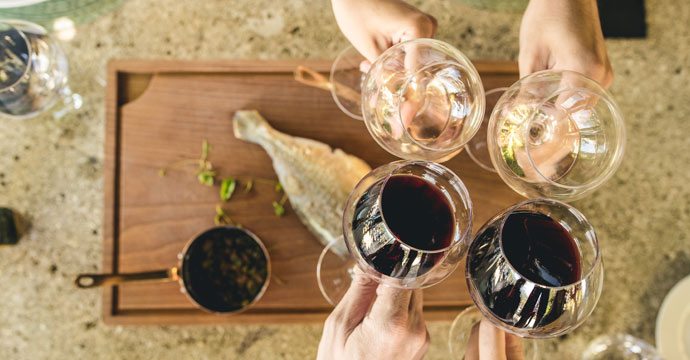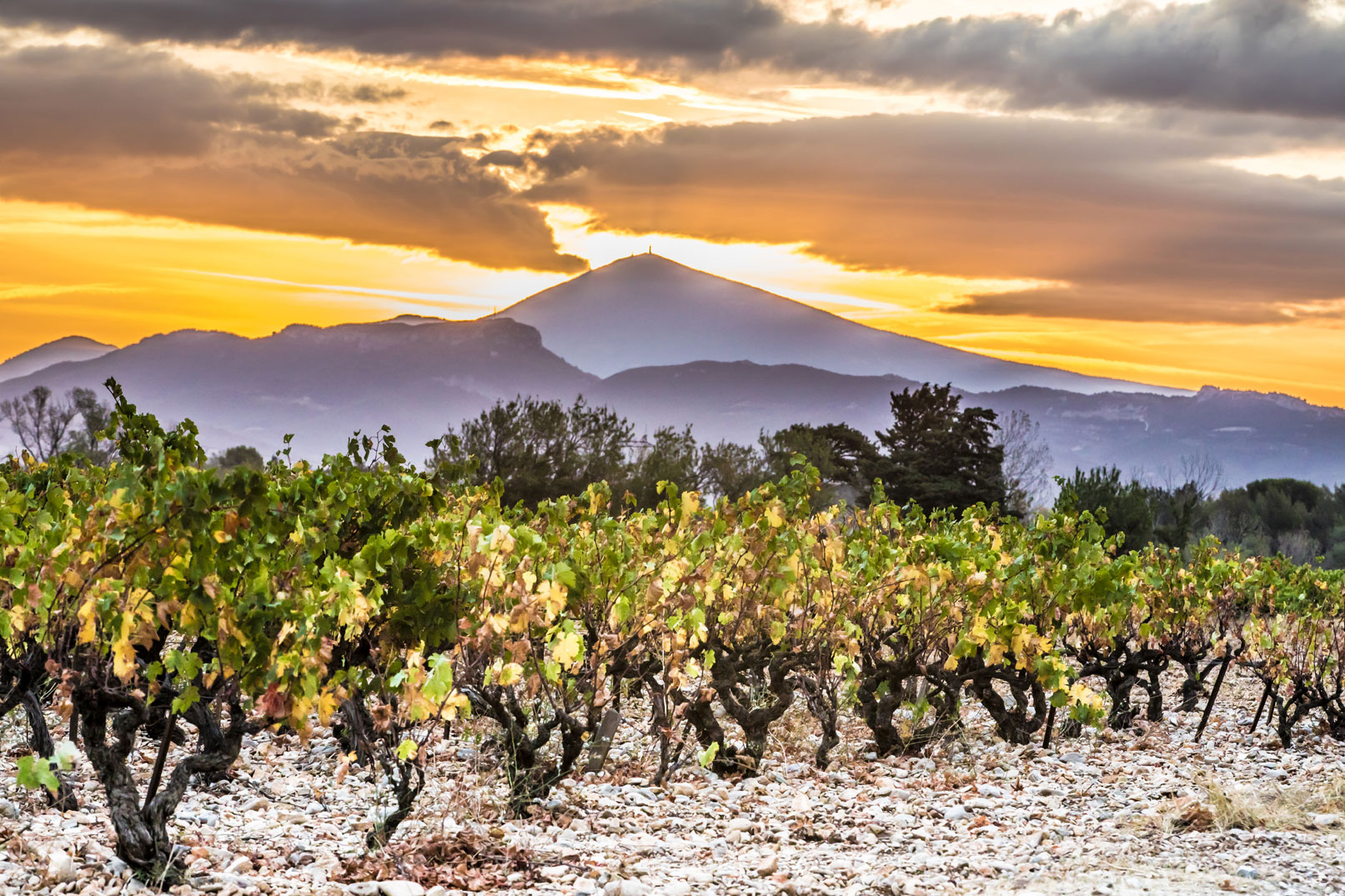
Vaucluse’s 3 wine appellations
Côtes du Rhône, Ventoux, and Luberon wines
On the left bank of the Rhône river, in Vaucluse, lie the Côtes du Rhône (with the additional “Côtes du Rhône Villages” AOC and its vintages), the Ventoux and the Luberon. Although the majority are reds, the Rhône Valley wines also stand out thanks to the quality of their rosé and white wines.
THE “CRUS” OF THE CÔTES DU RHÔNE
in Vaucluse
Up first, we have “his holiness Châteauneuf-du-Pape”, with its reds and whites, noble, fine wines which need no further introduction.
Then, growing at the foot of the Dentelles de Montmirail, the highly reputed Gigondas, Vacqueyras, Beaumes de Venise and – since 2010 – Rasteau appellations offer superb, powerful red wines. Beaumes-de-Venise’s production of muscat sweet wine is also classified as a cru, and so is Rasteau’s natural sweet red wine (made from the Grenache grape variety).

Reds take centre stage
86% of Côtes du Rhône wines are red!
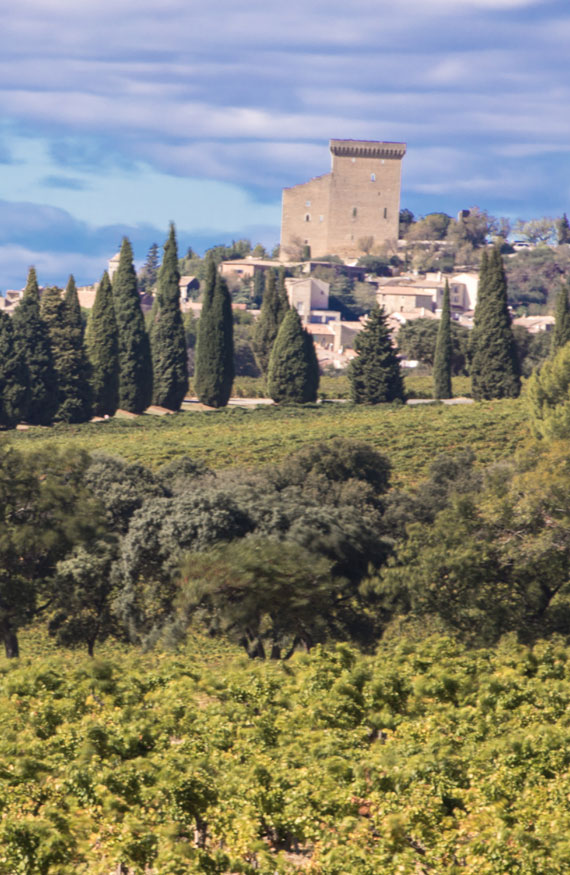
AOC Ventoux
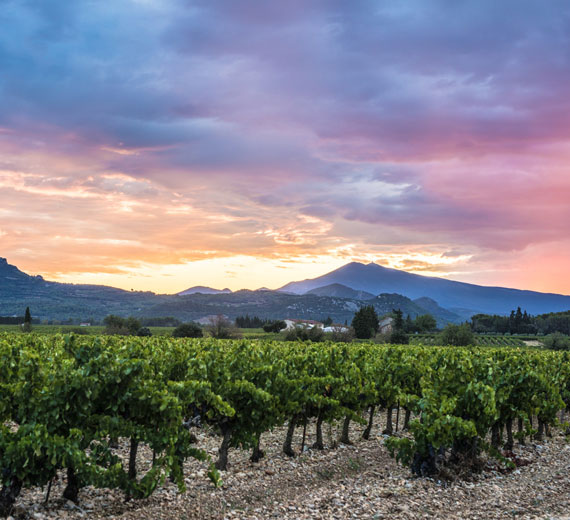

Did you know?
Ventoux wines were awarded AOC status in 1973, before which time they fell under the Côtes du Ventoux denomination.
The 1,909m-high Mont Ventoux is home to this diverse wine-growing region.
15 wine cellar cooperatives and 140 private cellars produced a total of 192, 532 hectolitres of wine in 2017, 63% of which was red, 32% rosé and 5% white. No less than 51 villages are linked to the appellation, from Malaucène to Apt via Carpentras.
These wines offer a plethora of flavours and aromas: reds whose exuberant aromas range from red berry and spice to truffle, resin and leather; rosés with fruity notes of cherry and raspberry; and finally golden-shaded whites whose fragrances of narcissus and iris blend harmoniously with refined touches of green apple and citrus fruits.
AOC Luberon
This very ancient wine-growing region sits on the sunny slopes of the Luberon hills.
Luberon reds are round on the palate, fruity and delicious.
They evoke smaller, ripe red berries (blackcurrant, blackberry, raspberry…). Another, more complex variety flirts with spiced notes (pepper), whilst still displaying that elegance and freshness which are the distincitve features of this AOC.
Luberon rosés, whose robes vary from palest pink to bright pink, stand out thanks to their pronouced aroma of red berry (strawberry, redcurrant) or more exotic scents and their freshness, making them some of the greatest Provence rosés. In 2017, production of rosé wine reached 47% of total production in the Luberon AOC. Luberon whites (21% of production in 2017) are characterised by their vividness and elegance, with a beautiful range of aromas – fruity scents from grapefruit to peach, and even honey or toast for more complex wines.

Did you know?
Luberon wine became one of the Rhône Valley AOCs in 1988 and extends over 36 communes.
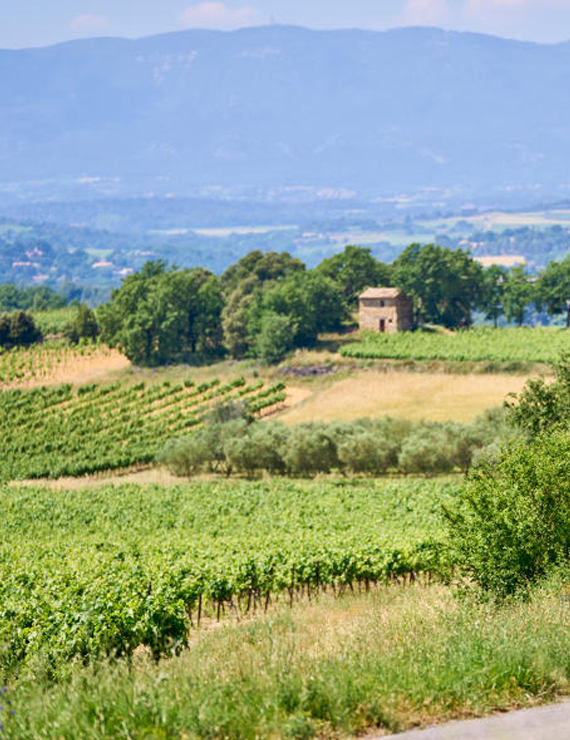
Côtes du Rhône Villages
Côtes du Rhône Villages is spread over 95 communes in Vaucluse, Gard, Ardèche and the Drôme. 21 wines of the “Côtes du Rhône Villages” appellation have the right to mention their geographical name on the label, 11 of which are in Vaucluse: Gadagne, Massif d’Uchaux, Plan de Dieu, Puyméras, Roaix, Sablet, Sainte-Cécile, Séguret, Vaison-la-Romaine, Valréas, and Visan.
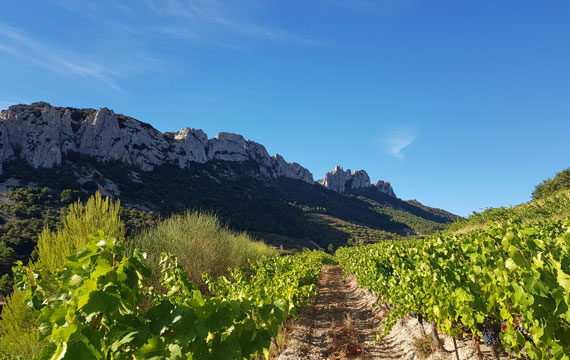

Good to know
11 of the 21 communes of the “Côtes du Rhône Villages” appellation are located in Vaucluse.
